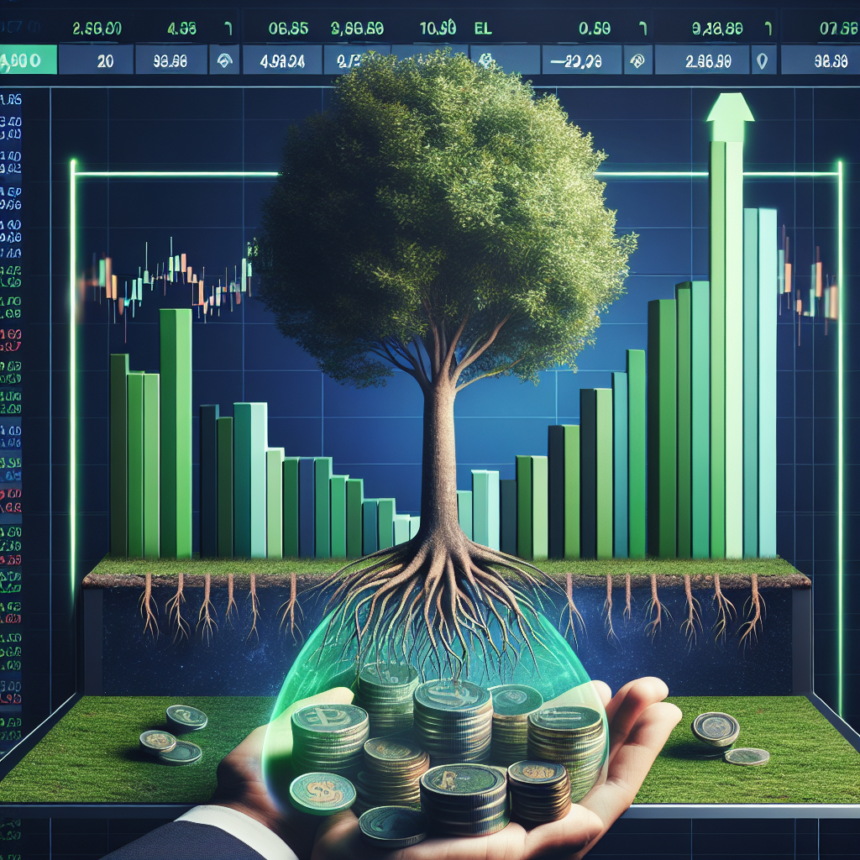In a world grappling with climate change, resource scarcity, and social inequalities, the investment landscape is undergoing a significant transformation. Sustainable investing has emerged as a compelling approach, allowing investors to align their portfolios with their values while also pursuing financial returns. As awareness grows about the impact of corporate actions on society and the environment, the rise of green trends in the market has become an undeniable force.
What is Sustainable Investing?
Sustainable investing, sometimes referred to as socially responsible investing (SRI) or environmental, social, and governance (ESG) investing, involves integrating ethical considerations into investment decisions. This approach aims not only to generate financial returns but also to create a positive impact on society and the planet. Investors analyze factors like environmental sustainability, social justice, and corporate governance practices when selecting stocks, bonds, and funds.
The Shift Towards Sustainability
The growth of sustainable investing can be attributed to several key factors:
-
Consumer Awareness: Consumers and investors alike are becoming more aware of the impact of their choices. With widespread media coverage of climate change and social justice issues, individuals are seeking to align their investments with their values. This increased awareness has driven demand for companies that prioritize sustainability.
-
Growing Evidence of Financial Performance: Numerous studies have shown a positive correlation between sustainable practices and financial performance. Companies with strong ESG practices tend to be more resilient and less vulnerable to regulatory risks. As a result, many investors see sustainable investing not as a sacrifice, but as a strategy to enhance long-term returns.
-
Regulatory Support: Governments around the world are increasingly recognizing the importance of sustainable investing. Regulatory frameworks are evolving to encourage disclosure of ESG risks and impacts. For example, the European Union’s Sustainable Finance Disclosure Regulation (SFDR) aims to increase transparency in sustainable investments. Such laws make it easier for investors to evaluate companies based on sustainability metrics.
- Innovative Financial Products: Financial institutions are responding to market demand by developing innovative products geared toward sustainable investing. Green bonds, ESG-focused exchange-traded funds (ETFs), and impact investment funds are just a few examples. These products allow investors to participate in the green economy while diversifying their portfolios.
Key Trends in Sustainable Investing
1. The Rise of Green Bonds
Green bonds are fixed-income securities specifically earmarked for financing projects with positive environmental impacts. From renewable energy installations to energy efficiency upgrades, these bonds have gained popularity as institutional and retail investors prioritize sustainable projects. According to climate bond initiatives, the green bond market has grown substantially, demonstrating that investors are willing to allocate capital toward sustainability.
2. Impact Investing
Impact investing is a strategic approach where investors actively seek out investments that generate measurable social and environmental benefits alongside financial returns. This could take the form of funding social enterprises or investing in companies that tackle issues like climate change and poverty. The impact investing sector is rapidly expanding, attracting attention from high-net-worth individuals, foundations, and institutional investors.
3. Increasing Focus on Diversity and Inclusion
Investors are increasingly recognizing the importance of diversity and inclusion (D&I) within companies. Firms that foster diverse leadership and inclusive work environments tend to outperform their peers. Sustainable investors are not only focusing on environmental impacts but also assessing the social consequences of their investments.
4. Technological Advancements
Technological innovations are streamlining sustainable investing. From platforms that allow retail investors to invest in green projects easily to advanced analytics that assess ESG data in real time, technology is making it easier for investors to make informed decisions. Blockchain technology is also being explored for its potential to enhance transparency and traceability of sustainable investments.
FAQs
What are the key benefits of sustainable investing?
Sustainable investing can lead to competitive financial returns while contributing to positive social and environmental outcomes. Additionally, it allows investors to align their personal or organizational values with their investment choices.
How do I start investing sustainably?
To begin sustainable investing, assess your values and the issues that matter to you. Research sustainable investment funds or consult a financial advisor knowledgeable about ESG-oriented strategies.
Are sustainable investments less profitable than traditional investments?
Contrary to the misconception, numerous studies reveal that sustainable investments often perform as well or even better than traditional investments. Strong ESG practices can indicate better management and lower risks.
What challenges does sustainable investing face?
Despite its growth, sustainable investing faces challenges, including a lack of standardized metrics for assessing ESG performance and greenwashing, where companies exaggerate their sustainability efforts.
How can I evaluate a company’s sustainability practices?
Investors can use ESG ratings, sustainability reports, and third-party research to evaluate a company’s sustainability practices. It’s essential to consider both quantitative data and qualitative insights when making investment decisions.
In conclusion, sustainable investing represents a vital evolution in the financial sector, reflecting a growing consensus that profit and purpose can coexist. As green trends continue to rise, investors have the opportunity to play a crucial role in shaping a sustainable future for our planet.











